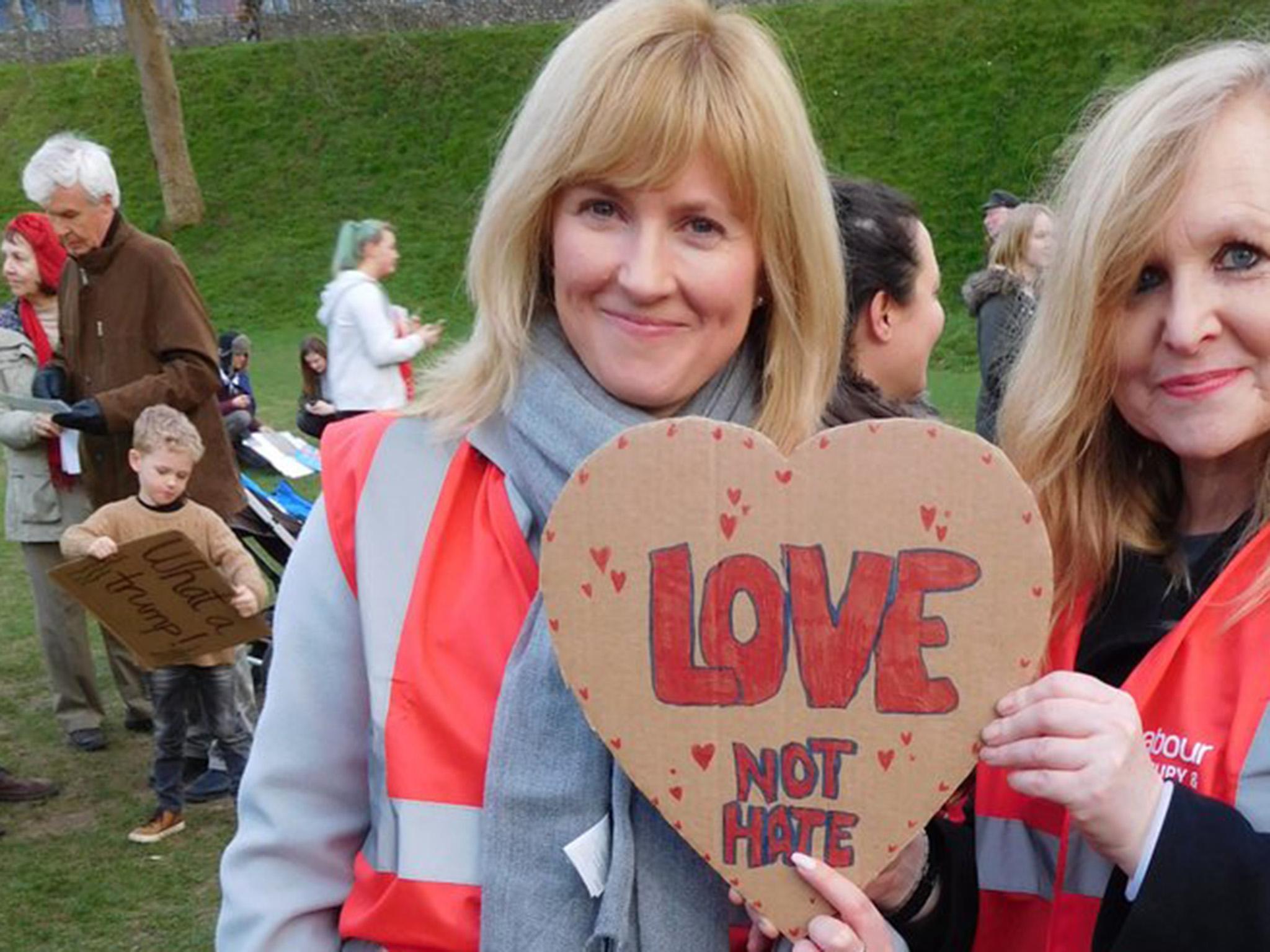Rosie Duffield speech: Tearful MPs break into round of applause after powerful address on domestic abuse
‘Abuse isn’t only about those noticeable, visible signs. Sometimes there are no bruises. Abuse is very often all about control, and power,’ says MP for Canterbury
Your support helps us to tell the story
From reproductive rights to climate change to Big Tech, The Independent is on the ground when the story is developing. Whether it's investigating the financials of Elon Musk's pro-Trump PAC or producing our latest documentary, 'The A Word', which shines a light on the American women fighting for reproductive rights, we know how important it is to parse out the facts from the messaging.
At such a critical moment in US history, we need reporters on the ground. Your donation allows us to keep sending journalists to speak to both sides of the story.
The Independent is trusted by Americans across the entire political spectrum. And unlike many other quality news outlets, we choose not to lock Americans out of our reporting and analysis with paywalls. We believe quality journalism should be available to everyone, paid for by those who can afford it.
Your support makes all the difference.Tearful MPs erupted into a round of applause after a Labour MP delivered an emotionally charged speech about the domestic abuse her former partner subjected her to.
Rosie Duffield, the MP for Canterbury, earned a standing ovation after recounting the abuse she was forced to endure during a debate on the domestic abuse bill in the House of Commons on Wednesday.
Ms Duffield described how her fiancé, who she got engaged to shortly after she was elected for the first time in 2017, subjected her to a campaign of coercive control and became progressively psychologically abusive towards her.
“The soap-opera scenes only tend to focus on one or two aspects of a much bigger and more complex picture,” she told MPs.
“The faces of those who survive” domestic abuse are varied, she said, adding it is likely some of the 650 MPs in parliament will have experienced such abuse. “We are just as likely as anyone else to have grown up in a violent household,” the politician added.
Ms Duffield said: “Abuse isn’t only about those noticeable, visible signs. Sometimes there are no bruises. Abuse is very often all about control, and power.”
But the politician, who was born in London and left school at the age of 16, warned abusive partners do not present themselves that way.
She said: “It’s not how they win your heart, it’s not how they persuade you to meet them for a coffee, then go to a gig, then spend an evening snuggled up in front of a movie at their place.
“When they ask you out they don’t present their rage, and they don’t tell you that they like the idea of strong independent successful women but not the reality.
“They don’t threaten, criticise, control or exert their physical strength in increasingly frightening ways – not yet.
“Not at the start, not when they think you are sweet, funny and gorgeous. Not when they are trying to impress you. Not when they meet your friend, parents or the leader of your political party.
“They don’t do any of that then, it’s only later when the door to your home is locked. Only then do you really start to learn what power and control looks and feels like.”
Eventually, behind closed doors, “you learn that ‘I’ll always look after you, I’ll never let you go’ and ‘You’re mine for life’ can sound menacing and are used as a warning”.
“It’s when the ring is on your finger that the mask can start to slip,” the former teaching assistant said. “Reward, punishment, promises of happily-ever-after, alternated with abject rage” becomes the pattern.
“Every day is emotionally exhausting, working in a job that you love but putting on a brave face and pretending all is good.”

One day, as her partner left for the gym, Ms Duffield hid his door keys and locked him out, she told MPs.
Afterwards, he raged at her and issued threats, but, some six months later after what felt like “withdrawal”, she began to move on.
Breaking down into tears, Ms Duffield said: “If anyone is watching and needs a friend please reach out if it’s safe to do so and please talk to any of us because we will be there and we will hold your hand.”
The latest figures show that out of an estimated 2 million victims of domestic abuse in the last year, some 1.3 million were women. The majority (70 per cent) of victims of domestic violence deaths are female.
Every week in the UK, two women are murdered by a partner or ex-partner.
Anyone who requires help or support can contact the National Domestic Violence Helpline, which is open 24/7 365 days per year on 0808 2000 247 or via their website www.nationaldomesticviolencehelpline.org.uk
Subscribe to Independent Premium to bookmark this article
Want to bookmark your favourite articles and stories to read or reference later? Start your Independent Premium subscription today.

Join our commenting forum
Join thought-provoking conversations, follow other Independent readers and see their replies
Comments